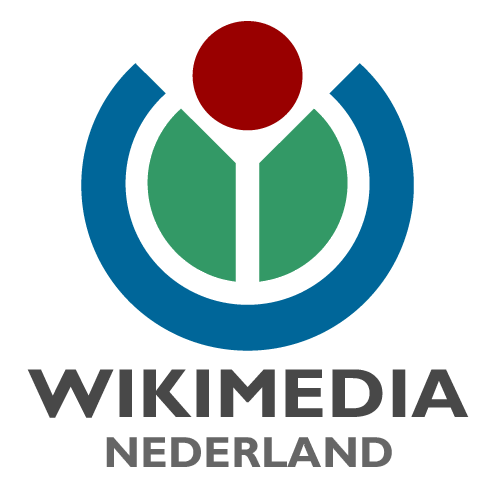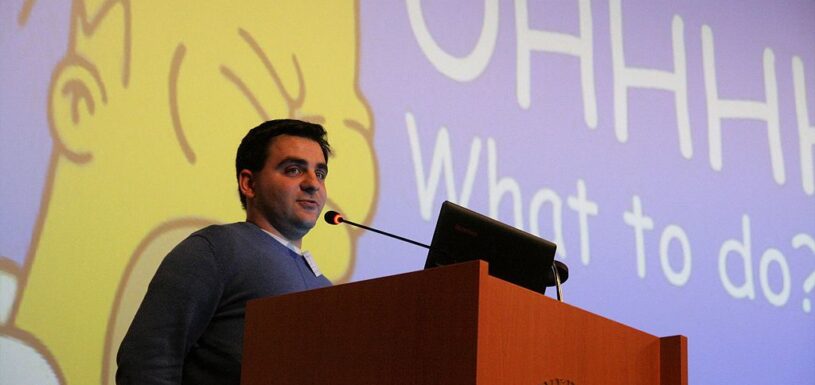Wikimedia Europe monitors access to free knowledge in Brussels
Geplaatst op 6 september 2025By Dimitar Dimitrov, Policy Director Wikimedia Europe
Wikimedia Europe
Wikimedia Europe is an association of European Wikimedia affiliates. Our primary task is to monitor EU legislation that would have an impact on free knowledge in general and Wikimedia projects in particular. We advocate for changes that improve access to and quality of knowledge and quite often need to explain to lawmakers how some proposals tailored to regulate large, for-profit platforms could harm collaborative, non-commercial projects like ours.
Have you ever heard of the Wikipedia Test? In essence, it states the following: If a new law makes it harder for Wikipedia or similar projects to exist - non-profit, community-lead, no ads, no algorithmic enhancement - then the law is not good.
The concept was first proposed by Mallory Knodel at Internet Governance Forum (IGF) 2023 (video). And it has now been moulded into shape by the Wikimedia Foundation. Much of Wikimedia's advocacy efforts in practice is based on applying the Wikipedia Test.
A few examples to demonstrate:
Child Protection
Under the EU’s content moderation framework, Article 28 of the Digital Services Act, online platforms have “to ensure a high level of privacy, safety, and security of minors”. To put more flesh on the bones, the European Commission adopted additional child protection guidelines based on that article. These are a non-exhaustive list of recommended, but nonobligatory, measures on how to protect children from online risks such as harmful content, addictive behaviours, or cyberbullying.
Some of the recommendations are setting minor accounts to private by default, limiting visibility to contacts, to disable geolocation and microphone/camera access by default, and to restrict unsolicited messages and group additions without consent. The document also lists and weighs different age verification technologies, however explicitly recommending their use only for the sale of alcohol, tobacco and nicotine-related products, drugs, for gambling and for adult content.
—
Wikimedia Europe worked with the Wikimedia Foundation to provide public feedback to the Commission. The tenor of the response was that one size fits all approaches are inappropriate, considering how diverse platforms can be. One concrete example in the guidelines is the recommendation that minors shouldn’t be easily found or contacted by accounts they have not previously accepted as contacts/friends. This is obviously not easily applicable to Wikipedia, it probably won’t pass the Wikipedia Test if it became hard law.
European Media Freedom Act
Last year, as we wrote in our previous update for this blog, the EU adopted the European Media Freedom Act (EMFA), a regulation that recognises the unique role of independent media services in the EU and whose aim is to safeguard media freedom and pluralism.
In view of the full entry into application of the new rules, which is foreseen in August 2025, the European Commission launched a targeted consultation on Article 18, the so-called media exemption. Article 18 establishes that providers of very large platforms (VLOPs) will have to wait 24 hours to take down or restrict a post or account by self-declared media providers that may breach their own housekeeping rules. The idea behind this is to give traditional publishers a protection against being demoted or their remuneration switched off on social media.
This rule might make sense on commercial social media sites, where traditional publishers reach wider audiences, but it would clearly not pass the Wikipedia Test. And Wikipedia is a VLOP under EU law.
The EMFA does indeed provide for a carve-out for Wikipedia and similar projects, but the language is a bit vague. Hence, we made use of the opportunity to share our views with the Commission, mainly asking to: clarify the specific nature of the platforms in scope and to acknowledge and safeguard Wikipedia’s distributed and community-led model of content moderation.
Copyright
Some countries have cultural heritage laws. They are not copyright, but related to it. In essence, they extend exclusive protection to works that are in the public domain. Something that at least partially clashes with the so-called public domain safeguard and that makes it harder for our projects to thrive, thus not passing the Wikipedia Test. This is why we are watching this space carefully.
One interesting recent development comes from German toymaker Ravensburger. They used the Vitruvian Man, copyright long expired, on a jigsaw puzzle. Italy claimed that its Cultural Heritage Code extends protection, even beyond Italy, and sued. A German court now ruled against this. I will again refer you to Communia’s excellent write-up.
Big Fat Brussels Meeting X
On 3 & 4 October this year we are gathering for the tenth Big Fat Brussels Meeting. An event for Wikimedians to learn about, discuss and plan public policy activities. If you are interested in joining, please indicate on the Meta-Wiki page!
Click here for the Dutch translation



